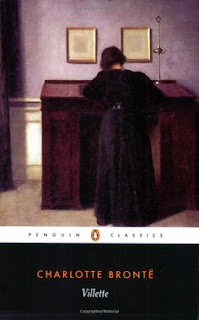Wow, Chekhov was in fine form with this short story! A narrator relates a story of a literary man trained at law, Vladimir Semyonitch Liadovsky, and his sister, Vera Semyonovna, a listless woman who has been disappointed in life. At the start of the story, Vladimir has compassion and love for his sister, who had her new husband die, survived a suicide attempt, and now is living with him, quietly revering his talents.
And although there is a peaceful harmony at the beginning of the story, we sense a restlessness within Vera, and a somewhat egotistical, intolerant manner within Vladimir who displays a rather self-satisfied demeanour with regard to his talents and an intellectual judgement over his those who cannot share is views.
However, one day their quiet and predictable life is shaken when Vera poses an unsettling and unexpected question, "What is the meaning of non-resistance to evil?" Suddenly a new idea is brought upon Vladimir by someone close to him, someone whom he is used to seeing as a subordinate and one who praises him, no matter what the situation. It is a liberal question that presses against his conservatism, a progressive question that goes against tradition, an elephant in the room, so to speak. At first he cannot quite comprehend but Vera persists, "Where would we all be if human life were ordered on the basis on non-resistance to evil?" Vladimir attempts to slough off the idea, by approaching it lightly in his next article but his sister is not satisfied, "Why would a gardener sow for the benefit of thieves and beggars, as one did in the story she just read? Did he behave sensibly?" Vladimir is further distressed as he senses for the first time, the admiration he is used to receiving from her is uncomfortably absent. He expounds that to write in such a way is to allow the thought that thieves deserve to exist. What garbage!
 |
| Moscow in Winter (1872) Ivan Aivazovsky source Wikiart |
Their interactions increasingly degrade, as the question and Vera's change in manner begin to tear apart the equanimity and peace of their previous existence. Vera wants to explore ideas, to search for answers; Vladimir simply wants to remain grasping his ideas, the ideas he has survived on during his life. They talk and they discuss. They do not understand each other.
The ending I will leave uncommented on if others want to read this tale, but needless to say, it is not happy. Again, I'm so impressed with this story. Chekhov explores tradition versus progress through this interaction of genders and siblings. Who should better understand each other than people of the same blood, people who have lived together in close community and have a certain respect and love for one another? However, they not only cannot agree, they cannot even understand one another. But yet, one has to ask themselves what their relationship was built on, as it was only in harmony when the sister admired the brother and only gave compliments? Was it their lack of a truthful and deep relationship that undermined their ability to comprehend one another, or was it really a clear picture of the struggles of Russian society between the old tradition and the new ideas of the time. And we must not forget the title, Excellent People. Both the brother and sister are good people but each have different ideas. If we focus on "ideas" or "philosophies" and forget that we are dealing with people do we become less human and less able to understand each other? And while life would have been more harmonious if the sister remained in her apathetic devotion to her brother, and the brother remained happy in his narrow-minded pursuits, would it have been better? Their lives would have been more comfortable and untroubled, yet not as real. Ask yourself, is it better to remain peaceful and happy in a life of past tradition and apathy, or is it more "human" to strive for goals and struggle for something better for self and society, but remain miserable within this quest? And a question from Mudpuddle's comment below: I wish I knew if Chekhov meant the title to be serious, in that we can all have good intentions and different points of view and yet still experience unsatisfying and disharmonious outcomes, or sarcastic in that both the brother and sister where not able to communicate their views and come to a resolution, their inner lives became more turbulent from examining them, and nothing really changed, so then they were really "excellent" only in the way they viewed themselves? Great questions with no easy answers!
I definitely have to read this again at a later date after it settles and percolates a little. I encourage anyone who has a spare ten minutes to read it and if you decide to come back and leave your thoughts, I'd love it. While it's only a 7-8 page short story, it would have made a great read-along. Who would have thought!
Deal Me In Challenge 2018 #1 ~ Two of Clubs





























